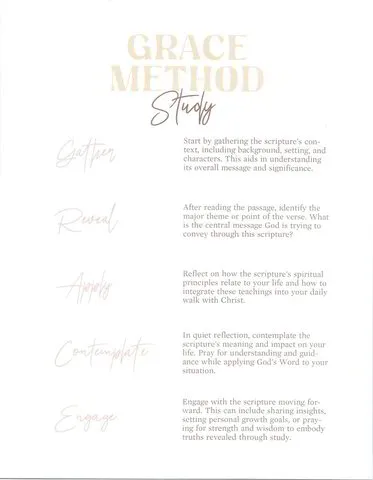In Pressing On: Learning to See Challenges as Opportunities for Growth, we explore one of the greatest hindrances to a believer’s walk with God—themselves. Often, as our hearts draw closer to God and we step out in faith, seeking to know and understand Him more deeply, we encounter the “brick wall” of our own limitations. The reality is that as we grow in faith, God begins to reveal hidden aspects of ourselves—fears, doubts, insecurities, and even old habits we thought were long gone.
These internal “walls” can feel overwhelming, as if they are blocking us from a deeper relationship with God. Yet, these challenges are not merely obstacles but invitations to press on, allowing God to transform our struggles into stepping stones for spiritual growth.

Recognizing the Wall Within: Understanding Our Own Limitations
One of the biggest challenges in our walk with God can be facing the things in ourselves that seem to hold us back. Whether it’s doubts, insecurities, or even pride, we often encounter internal resistance just as we start to grow closer to God. Paul describes this struggle in Romans 7:15-20, where he talks about his own battle to do what is right despite feeling drawn to the very things he wants to avoid. It’s an experience many of us can relate to—feeling as though we’re running into a wall within ourselves when striving to deepen our relationship with God. But recognizing these “walls” isn’t a failure or a setback; instead, it’s a step toward a closer, more honest connection with God, where He can start to work on those areas in us that need healing and transformation.
When we become aware of these inner struggles, God invites us to turn to Him with open hearts, allowing His strength to shine through our weaknesses. It’s a chance to see our limitations not as barriers but as places where God can reveal His power. Just as David prayed in Psalm 139:23-24—“Search me, O God, and know my heart…”—we, too, can ask God to gently reveal anything within us that holds us back and to lead us forward in His love. By inviting Him into these spaces, we give Him room to refine and strengthen us, transforming weaknesses into growth points. And we’re not alone in this journey; the Bible is full of stories of people who faced challenges that stretched their faith and ultimately helped them grow. These stories remind us that even when we struggle, God is there, ready to guide us through each challenge toward a stronger, more resilient faith.

Biblical Examples of Growth Through Challenges
The Bible offers examples of people who faced significant inner struggles—doubts, insecurities, or fears that could have held them back, but through faith, they grew closer to God. One example is Elijah. After a bold victory over the prophets of Baal on Mount Carmel, Elijah faced intense fear and discouragement when Queen Jezebel threatened his life. In 1 Kings 19:4, Elijah even prayed to God, saying, “I have had enough, Lord…Take my life; I am no better than my ancestors.” Despite his powerful ministry, Elijah felt hopeless and alone, as though he couldn’t go on. Yet God met him in his darkest moment, not with condemnation, but with comfort and provision. God restored Elijah’s strength through gentle care and encouragement, reminding him that he was not alone. Elijah’s story shows us that even in times of mental and emotional struggle, God is near, using these moments to help us grow in reliance on Him.
Another example is Jeremiah, who struggled with deep feelings of inadequacy and fear of rejection. Called as a prophet to deliver difficult messages to the people of Judah, Jeremiah often felt overwhelmed and doubted his purpose. In Jeremiah 1:6, he initially responded to God’s calling by saying, “Alas, Sovereign Lord…I do not know how to speak; I am too young.” He questioned his ability to be God’s messenger and often felt isolated and rejected by those around him. Yet, God assured him with words of strength and purpose, saying in Jeremiah 1:8, “Do not be afraid of them, for I am with you and will rescue you.” Through his inner battles and persistence in God’s calling, Jeremiah developed a resilient faith, understanding that his strength came from God’s presence, not his own confidence. These stories show that even mental and emotional barriers can be overcome when we allow God to work in us, shaping us into people who rely fully on Him.

Viewing Challenges as Divine Opportunities for Growth
Inner struggles, while challenging, can actually be some of the most profound stepping stones toward becoming more like Christ. Instead of seeing these difficulties as setbacks, we’re invited to view them as part of God’s refining process, shaping us to reflect His character more closely. James 1:2-4 encourages us to “consider it pure joy…whenever you face trials of many kinds,” explaining that trials develop perseverance, which ultimately leads to maturity in faith. By facing and overcoming our internal battles, we learn to rely more deeply on God, growing in patience, humility, and strength. These challenges, though uncomfortable, are opportunities for God to work within us, drawing us closer to His heart and purpose.
To embrace this transformation, we need to “renew our minds” daily through God’s Word and prayer, as Paul urges in Romans 12:2: “Do not conform to the pattern of this world, but be transformed by the renewing of your mind.” Through daily moments of reading scripture and connecting with God in prayer, we gain His perspective on our struggles. When facing challenges, ask God to show you what He wants to teach or refine in you. This intentional approach helps us see difficult situations not just as problems to endure but as part of God’s loving work in our lives, leading us toward a stronger, Christlike character. As we seek His guidance and understanding, our faith deepens, and we can face life’s ups and downs with renewed hope and purpose.

Leaning into God’s Strength: Surrendering Control and Trusting His Process
When our inner struggles feel overwhelming, God invites us to lean on His strength rather than our own. Sometimes, the only way forward is to surrender control and trust that He’s carrying us through. Paul’s words in 2 Corinthians 12:9-10 remind us that God’s “power is made perfect in weakness.” When Paul asked God to remove his “thorn in the flesh,” God didn’t take it away but assured him that His grace was enough to sustain him. Paul then embraced his weaknesses, saying, “For when I am weak, then I am strong.” This counterintuitive truth encourages us to find peace in our limitations, knowing that God’s power shines most brightly when we recognize our own need for Him.
The idea that strength can come from weakness isn’t a call to glorify suffering but an invitation to let go of self-reliance and embrace God’s sustaining power. Our culture often equates strength with independence and self-sufficiency, but Paul’s experience shows us that true strength comes from a deep reliance on God. This dependence isn’t passive or weak; it’s an active choice to trust God’s promises, lean on His grace, and let His Spirit work through us. In his weakness, Paul discovered a new kind of strength—one that doesn’t fade with physical limitations or personal struggles but grows as he trusted God more fully. It’s a reminder that our limitations are not obstacles to God; they are openings through which His power can flow, transforming us from within and equipping us for what He’s called us to do.
As believers, we don’t have to hide our weaknesses or pretend we have it all together. When we come to God honestly and acknowledge where we fall short, we give Him the space to step in and work. By embracing our need for His help, we experience a strength far greater than anything we could muster on our own. Paul’s declaration, “When I am weak, then I am strong,” is a powerful reminder that as we lean on God in our most challenging moments, we discover a strength not rooted in our abilities but in His unending grace and power.

In Closing
As we navigate life’s challenges, let’s remember that every “wall” we face is an opportunity for growth, a chance to draw nearer to God, and to deepen our faith. When we come up against our limitations, whether physical, mental, or spiritual, we’re reminded that God’s grace is sufficient for every need (2 Corinthians 12:9). Rather than viewing our weaknesses as obstacles, we can embrace them as places where God’s strength can shine most brightly. Philippians 3:14 encourages us to “press on toward the goal to win the prize for which God has called us heavenward in Christ Jesus.”
Let’s approach each challenge with a renewed mind, daily seeking God’s wisdom through His Word and in prayer. By relying on His strength, trusting in His purpose, and seeing our trials as part of His loving refinement, we can move forward with confidence. In every season, God is shaping us to become more like Jesus, building resilience, character, and a faith that endures.


